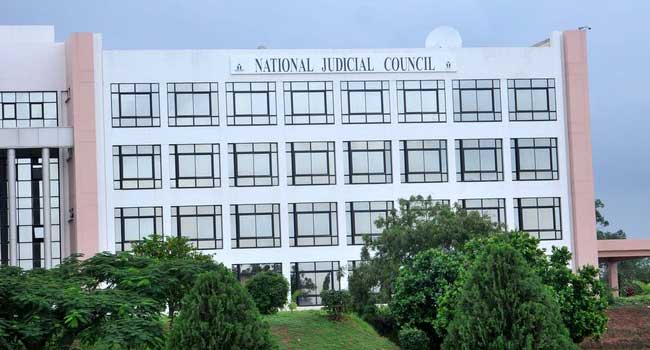
The National Judicial Council (NJC) has suspended G. C. Aguma, judge of a state high court in Rivers, for alleged judicial misconduct.
The council also suspended A. O. Nwabunike, Anambra state high court judge, for the same offence.
According to a statement by the council on Friday, both chief judges are barred from performing judicial functions for a period of one year without pay and would be placed on a watch-list for two years thereafter.
The council said the decision was reached at its 107th meeting chaired by Kudirat Kekere-Ekun, chief justice of Nigeria (CJN), on November 13 and 14.
“The Council’s findings revealed that Hon. Justice G. C. Aguma, committed acts of misconduct by aiding a litigant who obtained a judgment at the FCT high court, Abuja, and filed a garnishee against judgment debtors in Bori Division of the high court, Rivers state,” the statement reads.
“The council finds that justice Aguma failed to raise any query as to why the garnishee proceedings were brought to his court in Bori for a money judgment that could effectively be enforced in Abuja.
“That the judgment was delivered on 15 July 2020, at the high court of the FCT, while the certificate of judgment was registered at Bori division of the high court of Rivers state on 16 July 2020.
“The council further finds that the speed with which the Hon. justice Aguma took and granted the order absolute against the judgment debtors showed that he had an interest, especially as he failed to take into consideration the stay of execution of the judgment granted in favour of the judgement debtors by the Bwari High Court, which had been brought to his attention.
“On the part of Hon. Justice A. O. Nwabunike of Anambra state, the Council found him to have breached the provision of Rule 3.1 of the Revised Code of Conduct for Judicial Officers of the Federal Republic of Nigeria, 2016.
“He also failed to adhere to the principle of stare decisis from his different interpretation of the word “aspirant” and abused his judicial powers by granting ex parte orders without a Motion on Notice filed along with the originating summons.”








